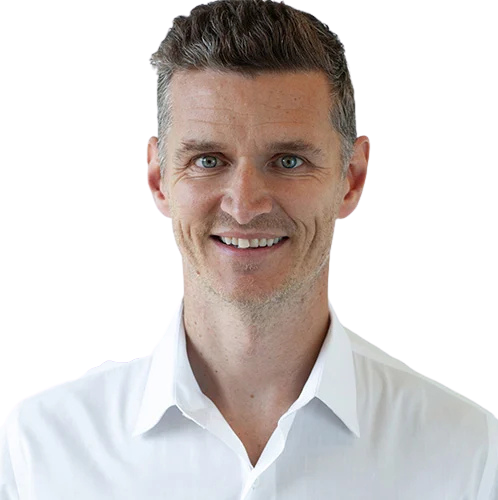Show Notes
Part 3 of 3. My guest for this week’s episode is James Evans, Founder and CEO of PhenoVista Biosciences, a contract research organization that works with biopharma clients of all sizes, from start-ups to established global companies.
Before starting PhenoVista, James spent a decade at MIT’s Whitehead Institute for Biomedical Research as a Postdoc, a Research Scientist, and finally, Director of the Bioimaging Center. Join us as we sit down with James to talk about how important it is to be scrappy as an entrepreneur, and how it is critical to adapt to change, as plans rarely remain unaltered. James also speaks to the importance of professional business development and how acquiring that skillset was a huge unlock for PhenoVista. James also covers the importance of setting client expectations, and discussing what is coming in the next year for PhenoVista.
Resources & Articles
Lab Equipment https://www.excedr.com/category/lab-equipment
First Set of Equipment https://www.excedr.com/general-lab-equipment
Autoclave https://www.excedr.com/general-lab-equipment/autoclave
CO2 Incubator https://www.excedr.com/general-lab-equipment/co2-incubator
Centrifuge https://www.excedr.com/blog/what-is-a-centrifuge
Lab Automation/Robotics https://www.excedr.com/general-lab-equipment/industrial-robots
Lab Balance https://www.excedr.com/general-lab-equipment/lab-balance
Lab Shaker https://www.excedr.com/general-lab-equipment/lab-shaker
Liquid Handler https://www.excedr.com/general-lab-equipment/liquid-handler
Ultra Low Temp Freezer https://www.excedr.com/general-lab-equipment/ultra-low-temperature-freezer
Biotech/Life Science Equipment https://www.excedr.com/biotech-life-sciences
Cell Counter/Analyzer https://www.excedr.com/biotech-life-sciences/cell-counter
Flow Cytometer/Cell Sorter https://www.excedr.com/biotech-life-sciences/flow-cytometer
Microplate Reader https://www.excedr.com/biotech-life-sciences/microplate-reader
RT-PCR https://www.excedr.com/biotech-life-sciences/pcr-systems
Used Lab Equipment https://www.excedr.com/blog/buying-used-equipment
Refurbished Lab Equipment https://www.excedr.com/blog/refurbished-lab-equipment
Startup Bootstrapping https://www.excedr.com/resources/how-to-bootstrap-biotech-startup
Writing a Lean Business Plan https://www.excedr.com/resources/how-to-write-lean-business-plan
Marketing, Sales, & Business Development https://www.excedr.com/blog/marketing-sales-strategies-for-biotechs
Reducing Costs & Improving Efficiencies https://www.excedr.com/blog/startup-costs-and-expenses
Cell Painting & High Content Imaging https://www.excedr.com/blog/an-introduction-to-high-content-imaging
Biotechnology Funding Options https://www.excedr.com/resources/biotech-startup-funding-options
Organizations & People
Alan McNeilly https://www.linkedin.com/in/alan-mcneilly-a497a025/?originalSubdomain=uk
Pamela Brown https://www.linkedin.com/in/pamela-brown-a8140a1a/?originalSubdomain=uk
Paul Matsudaira https://www.linkedin.com/in/paul-matsudaira/
Ivan Correia https://www.linkedin.com/in/ivan-correia-mba-phd-9b026576/
Sanjoy Ray https://www.linkedin.com/in/sanjoy-ray-1236051/
PhenoVista Advisors: https://phenovista.com/advisors
PhenoVista Team: https://phenovista.com/our-team




